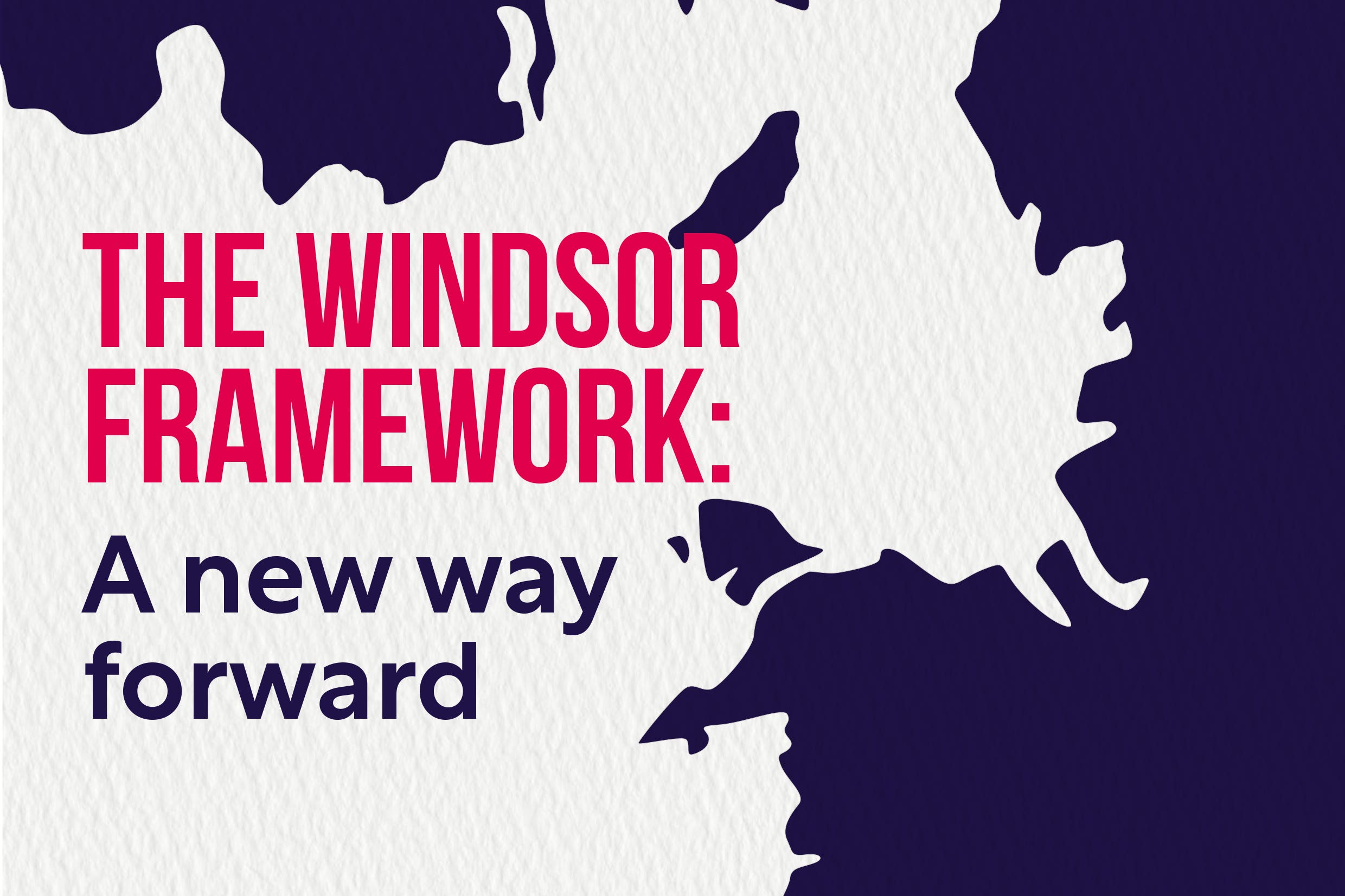Majority now in favour of Windsor Framework, new report reveals
A sizable minority remain opposed to the arrangements, with 34% disagreeing that it was good for the region.

Your support helps us to tell the story
From reproductive rights to climate change to Big Tech, The Independent is on the ground when the story is developing. Whether it's investigating the financials of Elon Musk's pro-Trump PAC or producing our latest documentary, 'The A Word', which shines a light on the American women fighting for reproductive rights, we know how important it is to parse out the facts from the messaging.
At such a critical moment in US history, we need reporters on the ground. Your donation allows us to keep sending journalists to speak to both sides of the story.
The Independent is trusted by Americans across the entire political spectrum. And unlike many other quality news outlets, we choose not to lock Americans out of our reporting and analysis with paywalls. We believe quality journalism should be available to everyone, paid for by those who can afford it.
Your support makes all the difference.A majority of people now believe that the Northern Ireland Protocol, with the Windsor Framework attached, is overall a good thing for the region, a new opinion poll has suggested.
The report from researchers at Queen’s University Belfast analysed poll data and found a majority (61%) currently see the protocol, with the Windsor Framework, as an appropriate means for managing the effects of Brexit on Northern Ireland and 56% as overall “a good thing for Northern Ireland”.
However, a sizable minority remain opposed to the arrangements, with 34% disagreeing that it was good for the region.
The protocol was first introduced by then prime minister Boris Johnson to manage the flow of goods moving between the UK to the EU through Northern Ireland.
Unionist parties strongly opposed the protocol on the grounds it created a sea border in the UK internal market, distancing Northern Ireland from Great Britain.
The Windsor Framework was Prime Minister Rishi Sunak’s attempt to alleviate unionist concerns with the protocol by decreasing checks on goods travelling between Northern Ireland and the mainland of the UK.
Opinion in Northern Ireland remains divided on the protocol, but the Windsor Framework does appear to have addressed for some voters the concerns that they have had, and so we see increased support for the protocol now compared to the start of the year
The latest poll from Queen’s shows almost three-quarters of respondents (73%) believe that particular arrangements for Northern Ireland are necessary to manage the impact of Brexit.
Some 62% do not think that Brexit is overall “a good thing” for the United Kingdom. The same proportion of respondents believe the United Kingdom was wrong to leave the European Union.
The devolved government at Stormont has not been operational for more than a year as the DUP is boycotting government in protest against post-Brexit trading arrangements.
Almost two-thirds of respondents (65%) agreed that the Windsor Framework, the Assembly and Executive should be restored and fully-functioning. Almost a third (30%) disagree.
The report also showed that majorities from supporters of all Northern Ireland political parties believed the UK and EU should increase engagement with stakeholders in the region on the implementation of the protocol/Windsor Framework, with 71% overall in favour.
Of all parties and institutions asked about in the poll, the UK Government was seen to be the least trustworthy, with 80% stating distrust, with 44% stating strong distrust in the UK Government.
The principal investigator on the report, Professor David Phinnemore from the School of History, Anthropology, Philosophy and Politics at Queen’s, said continuing support for the Windsor Framework would depend on how it was implemented.
“Opinion in Northern Ireland remains divided on the protocol, but the Windsor Framework does appear to have addressed for some voters the concerns that they have had, and so we see increased support for the protocol now compared to the start of the year,” he said.
“Whether that support will increase or even be sustained will depend on the implementation of the Windsor Framework being seen to benefit Northern Ireland.”
Co-investigator Professor Katy Hayward said the results showed promise in relation to increasing political stability in Northern Ireland.
“One of the biggest shifts we have seen in opinion since the Windsor Framework was agreed has been an increase in positivity around UK-EU relations and British-Irish relations,” she said.
“That in itself is a better foundation for political stability in post-Brexit Northern Ireland but there is still a long way to go.
“The fact that a clear majority want to see closer UK-EU relations and UK-EU consultation directly with stakeholders in Northern Ireland gives some indication of what might at least help.”
The report was produced by Prof Phinnemore, Prof Hayward and Dr Lisa Claire Whitten from Queen’s University.
It is the eighth in a series of regular opinion panel polls conducted for Queen’s researchers as part of a three-year project funded by the Economic and Social Research Council (ESRC), part of UK Research and Innovation (UKRI).
The polls used in the report are conducted every four months during 2021-2023 by LucidTalk using its online Northern Ireland Opinion Poll. The results presented are from a sample of 1,169 responses to the survey undertaken on June 9 to 12. The survey was completed by 2,559 respondents.